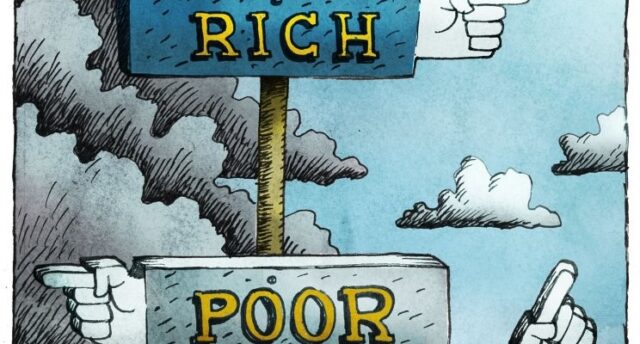Economic disparities have general effects on political stability and governance. High disparity in wealth and income levels lowers social cohesion, erodes confidence in institutions, and fosters political instability.
This economic inequality often translates into social division and dissatisfaction: when wealth is concentrated in the hands of a few, feelings of injustice and frustration are most certainly created in those regarded as being left outside the mainstream economy. This may take the form of political movements and unrest, which sometimes threaten the very stability of democratic systems.
Economic inequality-based political divisions could create a democratic failure or, on the contrary, more polarization, whereby the views on policy and governance could be very divided due to deepening economic inequality. This kind of polarization would become a barrier to governing and create a legislative gridlock.
To address this condition of economic inequality, it must be a problem that goes beyond single foci. Public policies that espouse equitable economic growth through progressive taxation, creating social safety nets, education, and health accessibility are imperative to reduce the disparities. Moreover, it is the creation of economic opportunities and support to the marginalized that help in curtailing the curve of such inequality.
An inclusive economic policy would help in ensuring political stability. It would help address issues that drive inequality and make economic growth work for large segments of the population, hence building confidence and trust in democratic institutions.
In summary, economic inequality translates into unequal political outcomes, causing a disbalance in social cohesiveness and governance. There is a need to counterpoise these disparities by fair and economy-encompassing policies in order to keep political stability and make our society fair and just.








